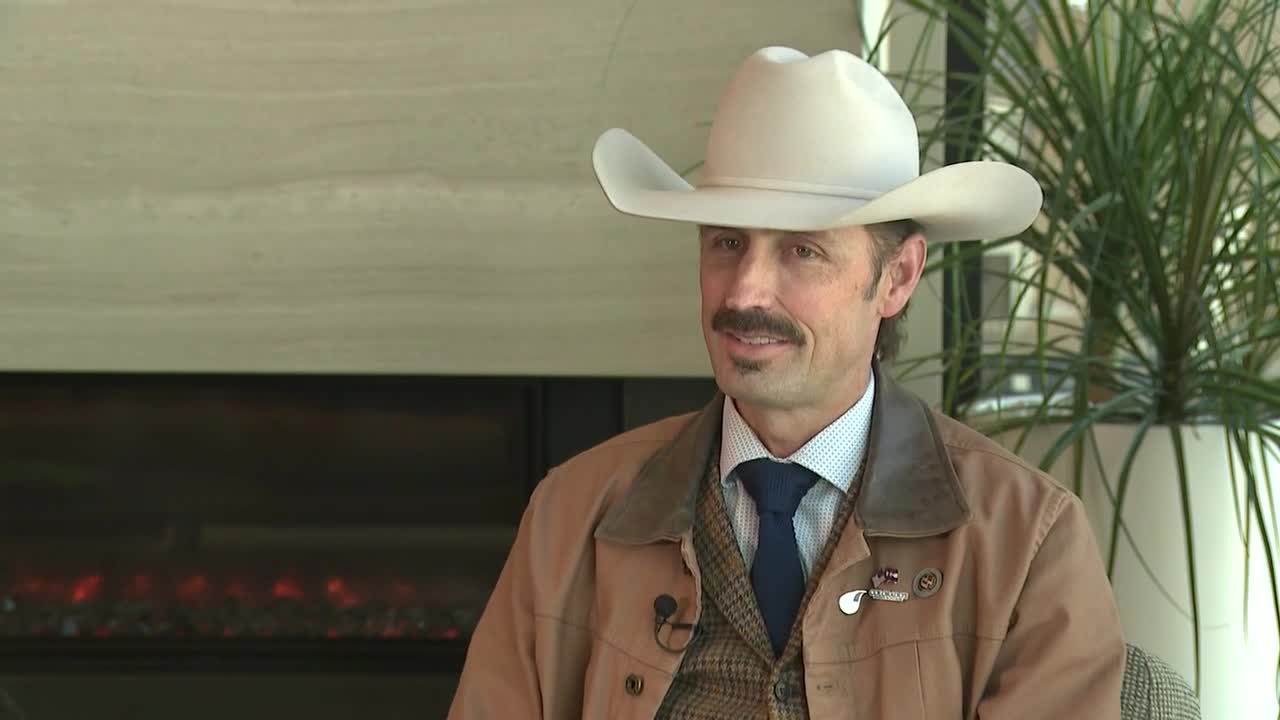DENVER — Colorado and six other states have until November 11 to reach a deal on splitting Colorado River water. If they don't, the federal government could step in.
Being able to administer our own water is something Colorado and the rest of the Upper Basin takes a lot of pride in.
"We jealously guard and protect and we we really love the ability to kind of control our own destiny on the Colorado River," James Eklund, a water attorney for Taft, Sherman and Howard in Denver, said. "If we don't get to a deal and we don't get a new operational protocol, moving forward that was agreed upon by the seven states, will have effectively ceded that decision making authority to Washington and the federal government."
The Colorado River Basin is composed of seven states. The Upper Basin states are Colorado, Utah, Wyoming and New Mexico, while the Lower Basin states are Arizona, California and Nevada. The headwaters of the Colorado River begin in Rocky Mountain National Park (RMNP).

The Colorado River also provides water to two states in Mexico and is a crucial resource for 30 tribal nations. Forty percent of the water in Colorado is supplied by the Colorado River.
The guidelines that manage this critical resource expire at the end of 2026, and stakeholders must decide how to share the Colorado River moving forward. That's easier said than done.
Eklund, who used to represent Colorado in negotiations on managing the river, said there are serious demands that require this resource.
"We've seen the reservoirs continue to decline and get into an area we call, 'the no fly zone' on those reservoirs, where if you drop the elevation, the water contents of those reservoirs below something called, 'minimum power pool,' you can't generate hydroelectric power," Eklund explained. "And that's really important power for the rural electric associations around the Rocky Mountain West in Lake Powell. And Lake Mead and Hoover Dam generate electricity that's used in the lower basin, that's load following power, which is incredibly expensive to replace on the grid, if you have to go to the spot market to replace it. So all of that is kind of coming together to really put a fine point on the state's need to get together."
Eklund said water levels continue to drop, and that's why the seven states are back at the table trying to split and conserve that water supply.
"The deadline really can't slip any more than it already has," Eklund said. "There's not a long enough runway to land the plane, like you'll run out of runway, and that's catastrophic to the the historic way we've done operations and management on this river. And everybody will feel that."
Denver7 also reached out to Governor Jared Polis' office. A spokesperson told us, "Meetings on the Colorado River agreement remain ongoing among the Basin States and we look forward to continued efforts to find a solution that supports everyone's best interest while protecting Colorado's water resources."
In statements obtained by Denver7 later Tuesday, the Great Basin Water Network and Living Rivers, organizations that work toward "a new vision for Colorado River management," said they were disappointed of what they described as "anemic" water negotiations.
"It is clear that negotiators cannot hash out a meaningful management regime to deal with the dwindling reservoir levels that we will likely see in the coming years,” said John Weisheit, conservation director of Living Rivers. “The federal government's deference to the states has got to stop. The impasse exists because some states want to develop more water and others don’t. That isn’t going to change between now and the end of the year.”
Meanwhile, Kyle Roerink, the executive director of the Great Basin Water Network, called on the Bureau of Reclamation to "rip off the Band Aid."
"In return for the largess of taxpayers, all we get is more uncertainty, less transparency, and heightened awareness that the current means of negotiating among the states are broken," Roerink said. "The states don’t deserve the kid-glove treatment any longer. They have a behavioral problem as much as they do a hydrology problem. Any entity that wants to increase use is unfit to manage our most precious resource.”
U.S. Sen. John Hickenlooper, a Democrat, also sent a statement to Denver7 later Tuesday, in which he said that taking the matter to court "would waste precious resources and could hurt everyone."
"Everyone from the Upper Basin to the Lower Basin knows how high the stakes are, but we don’t know how litigation would play out if agreement cannot be reached," Hickenlooper said. "This crisis won’t solve itself. We have to find a way forward – together."
A number of environmental organizations have issued recommendations found here.






